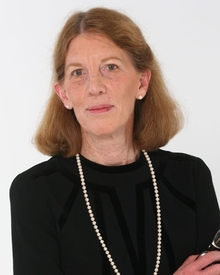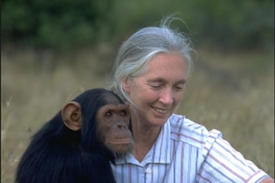 By Yoon Joung Lee Chairman and CEO of Delta Private Equity Partners, Patricia Cloherty, is a manager at two venture capital funds: Apax Partners, the U.S. Russia Investment Fund and Delta Russia Fund, L.P. She started her first career in venture capital at Patricof & Co. Ventures, a $10 billion private equity company and now known as Apax Partners, in 1969. She worked there as a partner and later became president and co-chair of the company. In 1977, President Jimmy Carter appointed her as Deputy Administrator of the U.S. Small Business Administration. Two years later in 1979, her husband and she founded a small business firm, Tessler & Cloherty. In 1981, she founded and served as president for the Committee of 200, a prestigious organization of the country’s leading women entrepreneur and corporate executives. In 1991, she was appointed Chairman of an Investment Advisory Council by President George H.W. Bush. She contributed to improve the U.S. Small Business Administration’s Small Business Investment Company. In 1995, she was selected to the Board of the U.S. Russia Investment Fund by President Clinton with $440 million investment capital. There, she served as the Chairman from 1998 to 2004; and from 2003 to 2006, she served as the Chief Executive Officer of its management company. In 2007, she received an award from the Moscow Government for her efforts on the development of entrepreneurship in Russia and her contribution to establishment and support small business in the country. In the same year, she also received the Woodrow Institute award by the Kennan Center for International Scholars who have shown their efforts on common good in their business practices. She is currently a Trustee of Columbia University, a Trustee Emeritus of Columbia University’s Teachers College and a Trustee for Life of International House. Also, she is a member of the Rockefeller University Council. She graduated from the San Francisco College for Women in 1964 for her Bachelor’s degree, and earned two other Master’s degrees from Columbia University.  Yoon Joung Lee A pioneering British primatologist, Jane Goodall, was born in 1934 in London, England. Her father, Mortimer Herber Morris-Goodall was a businessman and her mother, Vanna Morris-Goodall was a successful novelist. When she was two years old, her father gave her a stuffed toy chimpanzee and she became interested in animals and dreamt of living with animals in Africa. The name of the toy chimpanzee is Jubilee and she still keeps it as her treasure. She often spent her time outdoors; observing hens laying eggs in a hen-house or playing with her dog named Rusty. Her mother was always a big supporter and encouraged her dream. Her parents divorced when she was a child. She lived with her mother and grandmother in Bournemouth, England. When she was nineteen, she moved back to London to work as a secretary as her mom suggested her that with secretarial skills she will be able to travel all over the world because these skills are needed anywhere in the world. She was in London for a while and went back to the little town, Bournemouth to work as a waitress to save money for her first trip. At age twenty three, she saved enough money to visit her friend in Kenya. This trip left her with lessons and inspirations. There, she met Louis Leaky, a Kenyan archaeologist and paleontologist, and he was looking for a secretary while at the National Museum. But after finding out how serious and methodical Goodall was, he sent Goodall to Olduvai Gorge in Tanzania to do a study of chimps while he was raising the funding for the project. In 1960, it was decided that it was not proper for her to go into the wilds without a chaperone, her mother who was very close with Goodall went with her to Tanzania. They stayed in a tent for about four months to watch the chimpanzees. It took long hours to gain the trust of the chimpanzees. She patiently waited and watched them and they also watched her. She tracked them through the forests and gradually moved closer to the chimps until she was able to sit next to them. There, she discovered the behaviors and social relations of chimpanzees. They use nonverbal behaviors to show their emotions. They organize themselves in groups with complex social structures. They show affections toward parents and their peers. They also use simple tools to get termites out of mounds. In 1962, Leakey arranged to work on a doctorate degree at Cambridge University for Goodall. In 1965, she received a doctoral degree from Cambridge University without having earned an undergraduate degree. Her work caught the world’s attention was when National Geographic aired a television documentary about her research. Goodall later turned her attention to animal rights regarding laboratory animals or captive animals. She used her expertise and fame to work to set limits on the number of those animals and worked to improve conditions where animals were kept. With her efforts and works, she received many awards and honors including the Gold Medal of Conservation from the San Deigo Zoological Society, the National Geographic Society Centennial Award, the J.Paul Getty Wildlife Conservation Prize and the third Gandi/King Award for Non Violence at the United Nation. She does not spend her time Africa anymore. Now she travels all over the world giving speeches and lectures three hundred days a year. |
Archives
July 2017
Categories
All
|
 RSS Feed
RSS Feed